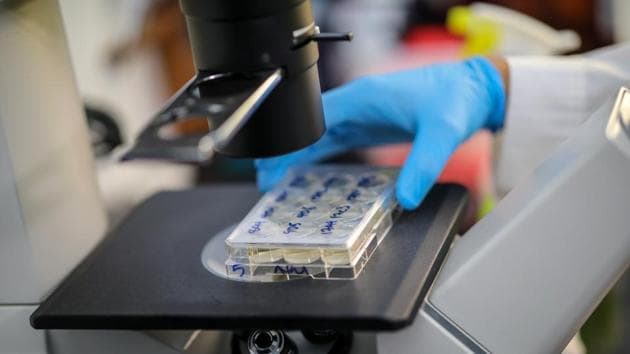Diminished response by ‘killer’ T cells behind high mortality rate in elderly Covid-19 patients: Study
Older patients with the coronavirus disease have lower frequencies of the immune cells needed to expel the virus from the body, the researchers found. The study was published this week in mBio, an open-access journal of the American Society for Microbiology.
Elderly patients face a higher risk of severity and death than younger patients due to COVID- 19, and new research, comparing the immune response among age groups, may help explain the reason why?

Older patients with the disease have lower frequencies of the immune cells needed to expel the virus from the body, the researchers found. The study was published this week in mBio, an open-access journal of the American Society for Microbiology.
“Elderly people have more severe diseases compared to young people, and we found that the cytotoxic part of immune control is not as efficient to respond to the virus in older people,” said virologist Gennadiy Zelinskyy, Ph.D., at the University Hospital Essen, in Germany, who also led the new study.
He and his colleagues analysed blood samples from 30 people with mild cases of COVID-19 to observe how T cells, which are necessary for recognition and elimination of infected cells, respond during SARS-CoV-2 infection. Patient ages ranged from the mid-20s to the late 90s. In all patients, the investigators found that acute SARS-CoV-2 infections led to lower numbers of T cells in the blood of the patients, compared to healthy individuals.
This reduction has been one of many unwelcome surprises from COVID-19, said Zelinskyy. Most viruses, once inside the body, trigger an uptick in the immune system’s expansion of T cells. These include “killer” T cells, which play a critical role in eradicating virus-infected cells. They produce cytotoxic molecules that destroy infected cells in the body. But if a person’s immune system produces fewer of these T cells, said Zelinskyy, it will be less successful at fighting off a viral infection.
In the COVID-19 patient group studied by Zelinskyy and his colleagues, the researchers similarly found that the number of CD8+ T cells producing cytotoxic molecules in response to virus diminished with increased age, and that reduction was significantly higher, on average, in patients over 80. Moreover, the “killer” T cells from patients aged 80-96 produced cytotoxic molecules at a lower frequency than similar cells from younger patients.
The SARS-CoV-2 virus attaches to cells in the nose or mouth. From there, it may spread to the lungs and move on to other organs, triggering a life-threatening infection. “Cytotoxic T cells really fight for control during this acute phase of infection,” Zelinsky said.
If an elderly patient’s immune system produces fewer killer T cells, and these cells are inadequately armed, he said, they may be mounting an insufficient defence against SARS-CoV-2. The viral particles can continue to spread and, as a result, the infection worsens.
The new data suggest that cytotoxic T cells play a key role in the control of early infections, but Zelinskyy cautioned that it’s too soon to know if that connection can be harnessed to design effective immunotherapy that uses these cells. In previous studies on viral infections in mice, his group found that a checkpoint inhibitor --immunotherapy that activates killer T cells and effectively releases the brakes on the immune system -- improved virus control at first but had the potential to later cause damage to the lungs and other organs. Further studies are warranted, he said, to better understand the potential risks and benefits of interfering with T cells as a way to control SARS-CoV-2 and other viruses.



